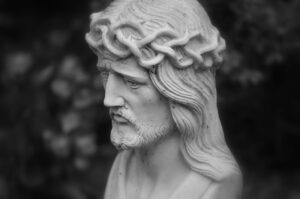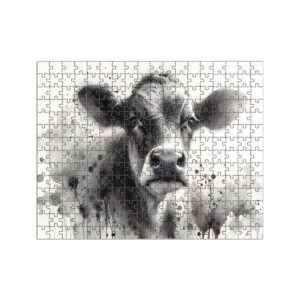
Explore & Play
Discover interesting topics and solve the accompanying crossword puzzle.
Boy’s Name Crossword | Boy’s names with historical significance
Table of Contents
Boy's Name Crossword
You can either fill in the crossword puzzle directly on this page or click the button in the bottom right corner to print it for free.

Norwegian Boy’s Names with Royal and Historical Roots
Norway’s rich history is mirrored in its traditional and modern boy’s names, many of which carry royal and historical significance. From the ancient Viking era to the present day, names have been passed down through generations, often carrying the weight of heritage, royalty, and religious influence. These names are not only identifiers, but they often embody the cultural values and traditions that define Norwegian society.
As we explore these names, you will notice how the influence of kings, saints, and legendary figures plays a crucial role in shaping the identities of boys in Norway today. Whether you’re expecting a child or simply fascinated by naming customs, this article will dive into the fascinating roots of Norwegian boy’s names, many of which are featured in the crossword puzzle provided at the start of this post. You’re invited to test your knowledge as we explore the meanings and stories behind these timeless names.
1. The Influence of Royalty on Norwegian Boy’s Names
1.1 The Legacy of Kings and Princes
Throughout history, the Norwegian royal family has played a significant role in shaping the names of boys in Norway, with many names reflecting the country’s royal heritage. The influence of kings and princes, both past and present, has made certain names synonymous with nobility and prestige. Names like Alexander, William, and Henrik are still commonly used in modern Norway, serving as a testament to the lasting power of royal influence.
For instance, Alexander, a name that signifies strength and leadership, has royal roots across many cultures, from ancient Greece to the royal families of Europe. In Norway, the name has remained popular through the years, often chosen by parents who wish to bestow a sense of grandeur upon their child. Similarly, William, another royal name, symbolizes resilience and determination. It has maintained its popularity in Norway, thanks to historical figures such as King William of England.
1.2 How Royal Names Shape Naming Trends
The popularity of royal names in modern Norway has been influenced by a combination of tradition and the reverence for Norwegian monarchs. Names like Magnus, Oscar, and David are among the top choices for parents today. These names are not only linked to Norwegian royalty, but they also reflect the broader Scandinavian traditions of choosing royal names as a means of honoring family legacy and historical ties.
In fact, the Norwegian monarchy itself has often influenced naming trends by choosing specific names for princes and other royal family members. This connection between the monarchy and naming practices ensures that certain royal names are perpetuated through generations, strengthening their cultural significance.
1.3 Popular Royal Names in Norway
There are many royal names that remain popular today in Norwegian society, such as Aksel, Frederik, and Isak. The name Aksel is particularly notable, as it carries a deep connection to the royal family, being a name that has been chosen for several princes throughout history. Similarly, Frederik has remained popular, both due to its historical associations with royalty and its meaning of “peaceful ruler.” Names like Isak, traditionally associated with biblical royalty, also continue to thrive in modern Norwegian society, symbolizing faith and endurance.
These royal names are not only popular for their royal associations, but also because they are steeped in historical and cultural significance, offering a sense of stability and honor that parents often seek when naming their children.
2. Biblical Roots: The Influence of Religious Names in Norway
2.1 Biblical Names in Norwegian Culture
Many of Norway’s most popular boy’s names have deep roots in the Bible, with names passed down for generations. The religious context surrounding these names lends them a sense of timelessness, reflecting the strong Christian heritage of the Norwegian people. Names like Noah, Jakob, and Samuel are not only common in Norway, but are also prevalent across many other Christian cultures worldwide.
The name Noah, for example, evokes the story of the great flood and symbolizes hope, salvation, and faith. It remains a popular choice for parents in Norway today, underscoring the lasting influence of biblical teachings. Similarly, Jakob, which means “supplanter,” is another name that has been used for centuries, representing persistence and determination.
2.2 Significance of Names Like Daniel and Elias
Names like Daniel and Elias also hold deep meaning in Norwegian culture. Daniel, which means “God is my judge,” is a name associated with wisdom and divine justice. Elias, meaning “My God is Yahweh,” is similarly significant, representing a deep connection to faith and divine favor. These names have persisted through generations, not only due to their religious meaning but also because of their association with revered saints and biblical figures who have influenced Norwegian society.
The popularity of these biblical names speaks to the enduring power of religious traditions in shaping naming customs in Norway. Even as the country becomes more modern, the significance of these names remains deeply rooted in its cultural identity.
2.3 Saints and Their Influence on Norwegian Names
Saints have also played an important role in the naming conventions of Norwegian boys. Names like Andreas and Thomas are common choices, inspired by Christian saints who left a lasting impact on religious history. Andreas, meaning “manly” or “brave,” is associated with Saint Andrew, the patron saint of Scotland. The name Thomas, which means “twin,” is linked to Saint Thomas the Apostle, who is widely revered in Christianity.
The influence of saints on Norwegian naming traditions ensures that many boys are given names that carry both religious meaning and historical importance. These names are often seen as a way to honor the faith and traditions that have shaped Norwegian culture for centuries.
3. Historical and Legendary Figures Behind Popular Norwegian Boy’s Names
3.1 Legendary Kings and Warriors
Beyond royalty and religion, Norwegian boy’s names are also shaped by history, with many names linked to famous historical figures and legends. Names like Arthur, Viktor, and Martin evoke the spirit of legendary kings and warriors who have played significant roles in shaping Norwegian culture and history.
For example, Arthur, a name associated with the legendary King Arthur of the Round Table, symbolizes leadership, bravery, and nobility. Similarly, Viktor, meaning “victor” or “conqueror,” speaks to the warrior spirit that was prevalent during Norway’s Viking Age and the era of legendary kings. Martin, which means “warrior of Mars,” also carries the connotations of strength and courage, making it a timeless choice for boys in Norway.
3.2 Viking Influence on Norwegian Names
The enduring influence of Viking heritage on Norwegian names cannot be understated. Many popular names in Norway today are tied to Viking warriors and legendary figures who were central to the nation’s founding. Names like Karl and Magnus evoke the Viking spirit of exploration and conquest, making them enduring choices for parents today.
The name Karl, which means “man” or “free man,” was borne by several Viking rulers and continues to be popular in Norway. Similarly, Magnus, meaning “great” or “mighty,” was a name used by several Viking kings, and it remains a symbol of strength and leadership.
3.3 Historical Figures Who Shaped Norway
Norwegian history is rich with influential figures who have shaped the country’s identity, and many boy’s names in Norway are derived from these historical leaders. Names like Edvard and Marius are linked to historical figures who have left an indelible mark on Norway. Edvard, a name associated with royalty and European history, means “wealthy guardian” and is a popular name in Norway due to its royal associations. Marius, linked to Roman history, symbolizes strength and resilience, reflecting the values of historical figures who have shaped the course of Norwegian history.
4. Scandinavian Traditions and Their Impact on Norwegian Names
4.1 Traditional Scandinavian Names and Their Meanings
Scandinavian naming traditions have always been rich with meaning, and many popular Norwegian boy’s names reflect a deeper cultural heritage. Names like Sander, Lucas, and Filip are deeply embedded in Norwegian culture, with each one carrying a specific meaning tied to nature, strength, and virtues.
The name Sander, for instance, is derived from the Greek name Alexander, meaning “defender of the people.” Lucas, meaning “light,” and Filip, meaning “lover of horses,” both carry strong ties to Scandinavian traditions that value nature and resilience.
4.2 The Connection Between Nature and Norwegian Boy’s Names
Many Norwegian names are directly inspired by nature, reflecting the country’s deep connection to the natural world. Names like Simon, which means “to hear” or “to listen,” and Liam, meaning “strong-willed warrior,” draw on themes of strength and connection to the environment. In a country known for its breathtaking landscapes, it’s no surprise that nature-inspired names are so common.
4.3 The Role of Local Saints and Historical Figures
Local saints and historical figures also play a crucial role in shaping Norwegian boy’s names. Benjamin and Tobias are names with biblical roots that have been passed down through generations in Norway. These names are often chosen because they symbolize wisdom and divine protection, attributes that are highly valued in Norwegian society.
5. Modern Trends in Norwegian Boy’s Names: A Blend of Old and New
5.1 The Rise of Shortened and Modern Forms
As Norway continues to evolve, so do the naming traditions, with many modern names blending historical and royal roots with contemporary influences. Names like Liam, Jakob, and Filip have become increasingly popular, reflecting global naming trends while retaining their Norwegian cultural roots.
The name Liam, which has roots in the Irish William, has surged in popularity in recent years, as has Jakob, a variation of the biblical Jacob. These names represent a shift toward shorter, more contemporary choices that still honor Norwegian heritage.
5.2 Reviving Classic Names
Despite the rise of modern names, many parents in Norway are also opting to revive classic, traditional names like David, Edvard, and Lucas. These names have stood the test of time and continue to symbolize honor, wisdom, and heritage. The revival of these classic names ensures that Norwegian boy’s names remain both meaningful and timeless.
5.3 The Role of Family and Cultural Identity in Naming
For many families in Norway, choosing a boy’s name is a deeply personal decision that reflects their cultural identity and family history. Names like William and Oskar are often chosen not only because of their royal significance but also because they honor family legacies and cultural traditions.
6. The Future of Norwegian Boy’s Names: What’s Next?
6.1 The Influence of Globalization on Norwegian Naming Trends
Globalization has had a significant impact on Norwegian naming practices, with names like Oliver and Noah gaining popularity across the world. These names reflect a broader international trend, but they still maintain strong ties to Norwegian culture and history. As globalization continues to influence naming trends, it will be interesting to see how Norwegian boy’s names evolve.
6.2 The Role of Family and Tradition in Future Names
While global influences are growing, family and tradition will continue to play a central role in naming decisions. Royal names, biblical names, and names with historical significance will likely remain popular choices for Norwegian families, as they offer a sense of continuity and cultural pride.
6.3 Predictions for Future Popular Norwegian Boy’s Names
Looking to the future, it’s clear that names like Aksel, Magnus, and Edvard will continue to be beloved choices for Norwegian parents. While newer names will emerge, the enduring appeal of traditional and royal names will ensure that the past continues to shape the future of Norwegian boy’s names.
Norwegian Boy’s Names: A Reflection of Heritage and Legacy
Norwegian boy’s names are a beautiful reflection of the country’s rich history, royal traditions, and enduring legacy. From the powerful influence of kings and saints to the strong connections to nature and Viking heritage, these names embody the values and traditions that have shaped Norway for centuries.
As naming trends continue to evolve, it will be fascinating to see how these royal and historical roots continue to influence the next generation.
Now that you’ve explored the historical and royal roots of Norwegian boy’s names, why not test your knowledge? Try solving the crossword puzzle to see how many of these names you can recognize!
Share to...
I hope you enjoy the content.
Want to receive our daily crossword puzzle or article? Subscribe!
You may also be interested in
Share to…
Want to receive our daily crossword puzzle?
-
Jigsaw Puzzles
Rose-Tinted Dreams Floral Puzzle 250 | 300 | 500 Pieces
kr 348,00 – kr 439,00Price range: kr 348,00 through kr 439,00 Select options This product has multiple variants. The options may be chosen on the product page -
Jigsaw Puzzles
Art Nouveau Jigsaw Puzzle with Betta Fish in Lush Garden Scene 250 | 300 | 500 Pieces
kr 348,00 – kr 439,00Price range: kr 348,00 through kr 439,00 Select options This product has multiple variants. The options may be chosen on the product page -
Jigsaw Puzzles
Twelve Zodiac Cow Ink Wash Jigsaw Puzzle 250 | 300 | 500 Pieces
kr 348,00 – kr 439,00Price range: kr 348,00 through kr 439,00 Select options This product has multiple variants. The options may be chosen on the product page

















